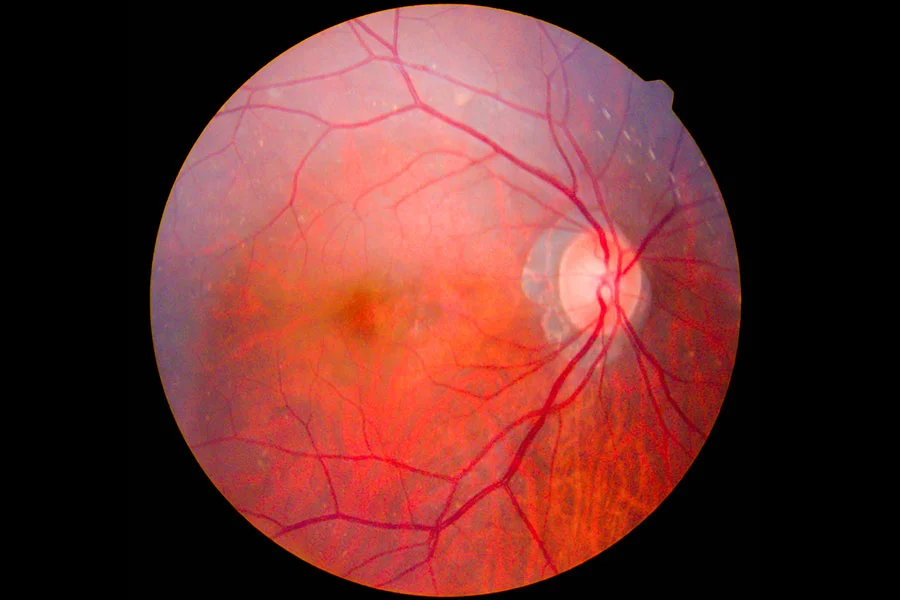
Diabetic retinopathy is the leading cause of vision loss among people with diabetes. High blood sugar levels damage the blood vessels, causing vision loss and even blindness.
But with early detection and careful treatment, you can live a long life with clear vision. If you have any questions about diabetic retinopathy treatment, let’s talk.
Diabetic retinopathy is a complication of diabetes that damages the blood vessels in the retina, the light-sensitive layer at the back of the eye. The abnormal blood vessels stimulate growth of scar tissue which cause the retina to pull away from the back of the eye. This leads to vision problems such as floaters & light flashes as well as severe vision loss & potentially blindness.
Diabetic retinopathy can develop in any patient presenting with type 1 or type 2 diabetes. Patients with long-term diabetes or with inconsistent blood sugar control are also at a greater risk for losing their vision. If you have diabetes and experience any of the following symptoms, contact us right away:
Our Curtis Vision optometrists will perform a comprehensive dilated eye exam to confirm your diagnosis.
Your treatment options will depend both on the severity of your visual health and your diabetic condition.
Early-stage diabetic retinopathy
For mild or moderate cases, you likely won’t need optometric treatment. Instead, we’ll recommend that you work with an endocrinologist to better manage your diabetes – better blood sugar control will help slow or even prevent further vision loss.
Late-stage diabetic retinopathy
Advanced cases and those that lead to macular edema require immediate attention. Depending on your specific condition, one of the following treatment options will be suggested:
What is the best treatment for diabetic retinopathy?
Laser focal treatments (photocoagulation) are the preferred treatment options among both optometrists and patients.
What worsens diabetic retinopathy?
Poor blood sugar control and high blood pressure can worsen diabetic retinopathy no matter which treatment option is used.
Can diabetic retinopathy be stopped?
Treatment can slow and even stop the progression of diabetic retinopathy but unfortunately, there is no cure. You’ll continue to have vision issues for the rest of your life.
 Book An Eye Test
Book An Eye Test